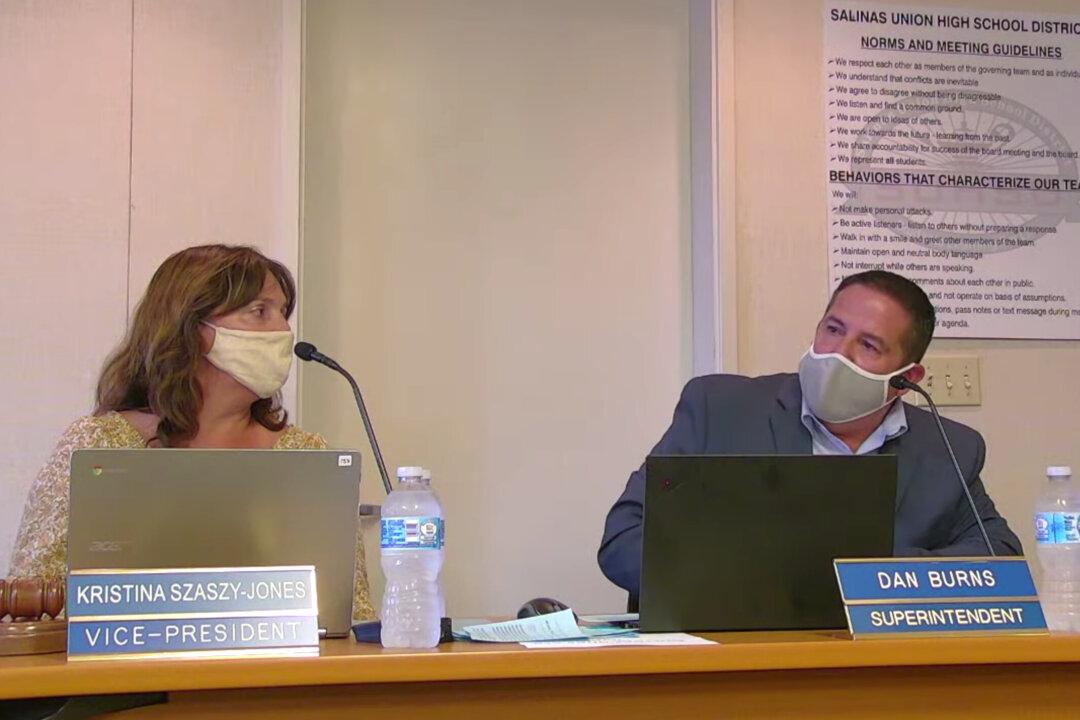A teacher who resigned her position at Rancho San Juan High School in Salinas, California, and moved to Florida this year after she said she was threatened and bullied on social media for opposing critical race theory (CRT) claims the school board has refused to read her public comments at meetings.
Kali Fontanilla told The Epoch Times that the Salinas Union High School District (SUHSD) hasn’t read her letter aloud during public comments since she submitted it to the board on July 13.





